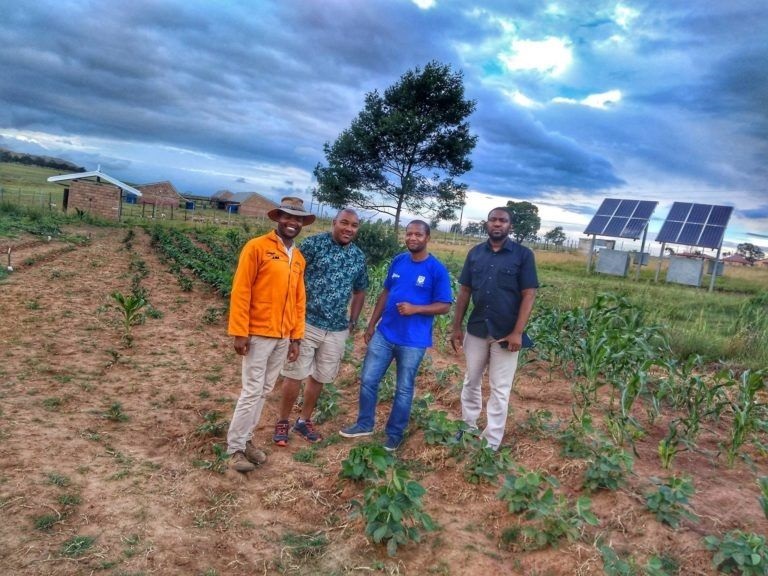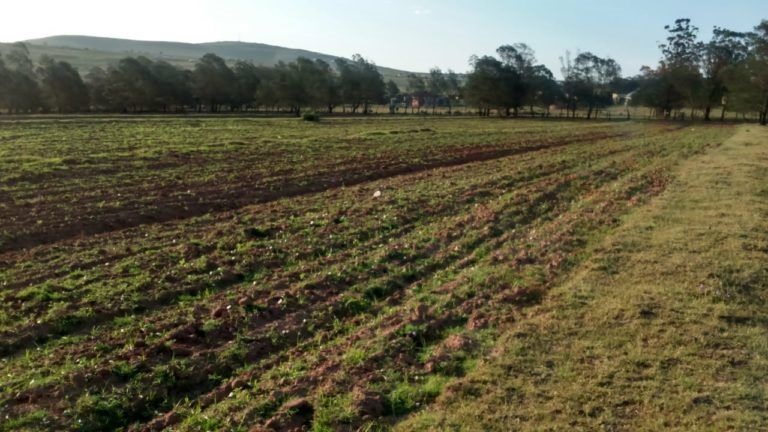
Top stories




Energy & Mining#MiningIndaba: How GenAI is reinventing mine maintenance in South Africa
Maroefah Smith 52 minutes


More news














The UWC researchers are currently helping the farmers, who run a small-scale cooperative named DI Farms in Mthatha in the Eastern Cape, improve their farming practices. As a result, DI Farms could soon become a major producer of soybean in the province.
The first thing that Ludidi did in 2017, when he first started working with DI, was introduce planting practices that would improve the health of their soil. This meant the adoption of additional crops – their focus was very much on vegetables – such as sorghum, maize and soybean.
Other than that it fetches a much better price than, say, maize, the soybeans was also a key crop for its role in enriching the soil. Soybeans, it is well known, is very good at trapping nitrogen in the air, feeding it through its roots into the soil. Here microorganisms, in a process called nitrogen fixation, convert the nitrogen into ammonia and other nitrogen-related compounds that plants do use. This, explains Ludidi, eliminates the need for nitrogen fertilisers as the nitrogen is provided by the soybeans themselves.
Ludidi also recommended the use of both drought-tolerant soybeans and soybeans that were very sensitive to drought, i.e. needed regular watering. That benefitted both Dingana, who wasn’t irrigating his fields and the UWC group who could now see how the different soybeans fared outside of a lab environment.

It was a mutually beneficial arrangement, explains Ludidi. "He grows our soybean to improve his yield to and generate seeds for himself that he could use for production of soybean at a larger scale, while we actually benefit because we get the data from his plantings."
So successful was the collaboration that Dingana has now started planting soybeans – using the seeds from the 2017 crops – into a larger patch of land, around four hectares in size. (An international-standard rugby field measures about one hectare.) In addition, DI Farms has also secured funding to expand its soybean production beyond that.
Ludidi and others in the PBRG have also since the inception of the partnership also given seminars on self-sufficiency in the town, and spoken to youth at the schools on issues of food security.
While capacity is limited, Ludidi would like to see collaborations like his with DI Farms scaled up substantially.
We want to see the small-scale farmers in rural areas – specifically targeting the former homelands – across the country being successful in sustainable crop production. - Professor Ndiko Ludidi

DST-NRF Centre of Excellence in Food Security is a virtual centre co-hosted by the University of the Western Cape and the University of Pretoria. Our mission is to undertake research to determine how a sustainable food system can be achieved to realise food security for poor, vulnerable and marginal populations. Our vision is to become a global leader in research, capacity building, and knowledge brokerage and service provision in food security and nutrition in Africa.
Go to: http://www.foodsecurity.ac.za/news